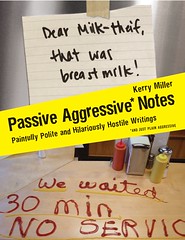
Monday, August 30, 2010



Monday, August 23, 2010
Charlotte's Web
You grew up with it. Your kids love it. Now see it brought spectacularly and imaginatively to life onstage. With adults, kids, and puppets, too! Celebrate the true meaning of friendship and family with Charlotte the spider, Wilbur the pig, and all the humans and animals on the Zuckerman farm. From the director of You're a Good Man, Charlie Brown, this is perfect holiday experience to share with your whole family.

All's Well That Ends Well By William Shakespeare

The Little Prince by John Scoullar and Rick Cummins Directed and Conceived by Scott Hitz

Romeo and Juliet By William Shakespeare - Craig Colfelt, Play Master

THE COLLECTION AND A KIND OF ALASKA Two plays by Harold Pinter
Sunday, August 22, 2010
Do you know precocious and curious kids who love mail and love to read?
Whereas Abe's Penny (our original publication) publishes only photographs, Abe's Peanut will feature illustrations, drawings, paintings, connect the dots, and other imagery that appeals to children. A different artist and writer will collaborate on each issue.
About Knicks Poetry Slam
Knicks Poetry Slam was created in 2003 to reach high school youth by using the popularity of hip-hop and poetry as a vehicle to motivate and inspire expression through the written and spoken word. With the growth of the program, the Knicks and program partner Urban Word NYC have provided greater opportunities for high school students to use their poetic skills and talents to pursue higher education. The program serves over 10,000 students annually through school site visits, a Poetry Open Audition, a College Fair, Workshops and Poetry Slams.
The Knicks Poetry Slam Program is broken up into two contests, Spoken Word and Written. Participants have the option of performing poetry live, competing online through KnicksPoetrySlam.com or by submitting a portfolio of their original work. The 2009-2010 Program will provide winners with more than $350,000 in college grants and prizes. Next year’s program will start in the fall.
Murphy Writing Seminars
Check out Peter E. Murphy and his new online home of Murphy Writing Seminars that specializes in offering:
| ● Writing Getaways with challenging & supportive workshops |
| ● Resources for poets, writers and teachers |

Better Book Titles

Sunday, August 15, 2010
Rosecrans Baldwin
Wednesday, September 15, 7:00 PM

NATALIE LYALIN: Try a Little Time Travel

NJPAC and Newark's DowntownArts District to Host October 7-10, 2010



"So, how do you want to do this?" he asked.
The week before, he had agreed to let me tag along with him on one of his scouting trips, to learn how he selects books. I had suggested going to Goodwill, a frequent haunt of his now that he was persona non grata in most San Francisco rare book shops. Gilkey, though, wanted to take me to Brick Row, from which he stole The Mayor of Casterbridge. I tried to mask my disbelief and hoped he would think of another place.
"Are you sure?" I asked. "Wouldn't Goodwill work? Or, if not that, aren't there any other stores you can think of?"
Probably sensing my unease, he hesitated. "Maybe they'll recognize me," he said, but reconsidered. "On second thought, it won't be a problem."
At home, I e-mailed Sanders for his opinion: Would the owner, John Crichton, whom I had not yet met, be upset or angry that I'd knowingly accompanied a rare book thief into his store? I didn't relish dealing with the wrath of one of Gilkey's victims, however peripherally.
"Crichton's a good guy," Sanders assured me and gave me the impression that, as Gilkey had said, it wouldn't be a problem.
I was still wary, but too curious to walk away from an opportunity to see Gilkey in his element. What sort of person returns to the scene of his crime? So far, I had come to know Gilkey only through our private conversations. I still had no idea how he behaved out in the world, especially his idealized rare book world. He shared many characteristics of other collectors, but his thieving set him apart in ways that still confounded me—was he amoral or mentally ill? How are such lines drawn, anyway? Accompanying Gilkey to Brick Row was an irresistible chance to be an eyewitness. Also, I had heard that the shop was well regarded among rare book collectors, and I wanted to see it firsthand.
Standing on the sidewalk in front of Brick Row, Gilkey said he would show me what he typically looks for and how he goes about it.
He did not appear to be apprehensive. I, on the other hand, was all nerves. I had no idea what Crichton might do when we walked in. This, at the very least, was going to be awkward...
Inside Brick Row, natural light streamed through the windows, illuminating books sitting in cases along every wall and under windows, and on a graceful arc of shelves that ran through the middle of the shop. It was a quiet refuge from the city streets below, and if you ignored the computer and phone on Crichton's heavy, oak desk, it could be a nineteenth-century bookshop. Thousands of majestic leather-bound books, many with gold lettering, caught the light as I walked by. Given Gilkey's Victorian library fantasies, I could see why he favored this shop, why he chose to bring me there. Unlike Sanders's shop in Salt Lake City, Brick Row was tidy and appeared highly ordered. I got the sense that only serious collectors would venture inside, in contrast to Sanders's shop, where collectors mingled with people in search of a good used paperback (he offered a selection at the back of the store). The doors of the locked bookcases on the right-hand wall near the entrance had metal screens in a crosshatch pattern that made deciphering titles a challenge. These cases contained some of Crichton's more valuable books. A filmmaker would do well to use Brick Row as a set for a gentleman's fine library. "More classier feel than some of the other bookstores that just rack them up in average bookcases," is how Gilkey had described it.
Crichton spoke from behind his desk. "May I help you?"
His question seemed to ask much more. He was looking hard at Gilkey.
"I'm not here to buy anything," said Gilkey congenially, "just to look around, if that's okay. We're just here to look."
No answer.
Crichton stood facing us. He was in his fifties with white hair, a ruddy complexion, and clear blue eyes. He had an assured air and seemed to be the kind of person who rarely had the wool pulled over his eyes.
Gilkey referred to his list of the Modern Library's "100 Best Novels," and explained to me how he often looks for books on it. He pointed to the name Nathaniel Hawthorne.
"Do you have any Hawthorne?" Gilkey asked Crichton.
Crichton answered curtly, "No."
"I know he has one," Gilkey whispered to me.
His comment was a hint at his antagonism toward dealers, which he had made plain in our prior meetings. He'd argued that there was, in fact, widespread fraud among rare book sellers, fraud that made him not only blameless, but also a victim.
One example Gilkey had cited was rebinding. Dealers, he explained, would remove the cover and title page from a second or later edition of a book, and then rebind it with a title page from a first edition that was in poor condition.
"They make it look like a first edition, first printing," he said. "That's part of the fraud they do. That's actually legal."
Later, I learned that there was nothing legal about this practice, but that it was not uncommon. The more expensive the book, the more likely it is that someone may have tampered with the binding. Such fraud is hardly new. In the eighteenth century, for example, facsimiles of pages, or "leaves," of ancient texts were sometimes created by hand and to near perfect effect. Of course, these efforts did not always go undetected, particularly when the pages were printed on eighteenth-century paper with an identifiable watermark. Even now, dealers come across pages of books that have been washed to give them a uniform appearance. Reputable dealers judiciously examine books for telltale signs of rebinding, but there are less upstanding dealers who don't.
As we inched down Brick Row's bookshelves, Gilkey pointed to another book on his list, "Kurt Vonnegut," he said. "I'd like something from him, too. And D. H. Lawrence," he said. "He's also good."
Crichton looked stunned and turned his back to us, then turned around again to face Gilkey. A few seconds later, while Gilkey was explaining to me which books he might like to look for, Crichton asked, "What's your name?"
"John."
John—as though Crichton would be satisfied with a first name! I looked down at my notes while my heartbeat threatened to drown out everything around me.
"John what?"
"Gilkey."
Crichton waited a moment, glanced down at his desk, then looked up. He didn't take his eyes off us as Gilkey pointed to various books and whispered, as one does in a library or museum, informing me about additional authors he was interested in: Vladimir Nabokov, Willa Cather. He commented that he stays away from bibles.
"And who are you?" Crichton asked me.

summary:







